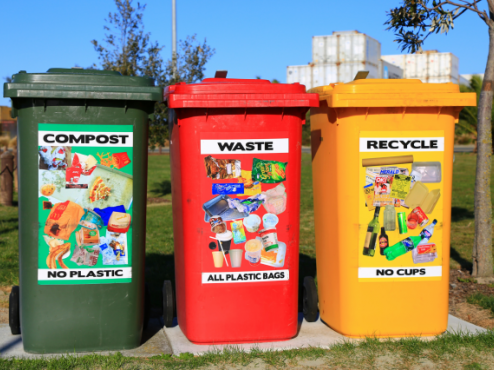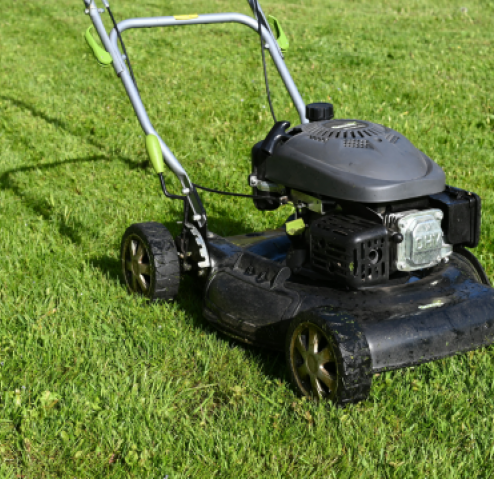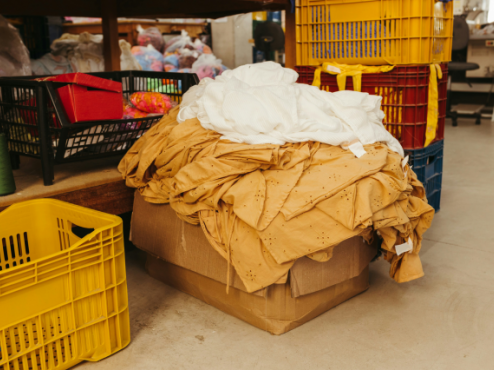Bagster vs Dumpster: Buy a Dumpster Bag or Rent a Small Dumpster?
When it comes to tackling a significant cleanup project, whether it’s a home renovation, yard work, or just a major decluttering, disposing of the waste efficiently is crucial. Two popular options are buying a Bagster or renting a small dumpster. Both have their pros and cons, and the best choice depends on your specific needs. In this comprehensive guide, we'll compare Bagsters and dumpsters to help you make an informed decision.
Understanding Bagsters and Dumpsters
Bagster is a brand of waste disposal bags that are durable and designed for holding up to 3,300 pounds of debris. They are often available at home improvement stores like Home Depot and Lowe's. Once filled, you schedule a collection with Waste Management, the company behind Bagster, to have it picked up and disposed of.
Dumpsters are large, metal containers that come in various sizes. For small to medium-sized projects, you might consider a 10-yard or 15-yard dumpster. They are typically rented from waste disposal companies, which drop off the container at your site and pick it up when you’re done.
Pros and Cons of Bagsters
Pros:
- Cost-Effective for Small Jobs: Bagsters can be a more affordable option for smaller projects. The initial purchase cost is low, and you only pay for pickup when the bag is full.
- Easy to Purchase: Bagsters are readily available at many local home improvement stores and can even be ordered online.
- Convenient Size: The compact size of a Bagster (about 8 feet long by 4 feet wide by 2.5 feet high) makes it suitable for small areas and easy to store until needed.
- Flexible Usage: You can buy a Bagster in advance and use it whenever you need. There’s no rental period, so you won’t feel rushed to fill it up.
Cons:
- Limited Capacity: Bagsters can hold up to 3 cubic yards of waste, which might not be enough for larger projects.
- Additional Pickup Cost: While the bag itself is relatively inexpensive, the pickup fee can add significant cost, depending on your location.
- Weight Limit: Although sturdy, Bagsters have a weight limit of 3,300 pounds. Exceeding this can lead to additional charges or refusal to pick up the bag.
- Manual Labor: You’ll need to manually load the Bagster, which can be cumbersome if you have heavy or bulky items.
Pros and Cons of Dumpsters
Pros:
- Larger Capacity: Small dumpsters, such as 10-yard or 15-yard options, can hold more waste than Bagsters, making them ideal for larger projects.
- Ease of Use: Dumpsters are typically delivered and picked up by the rental company, which means less manual labor for you. You can also often toss items over the side or use the door on the end for easy loading.
- Flexibility with Waste Type: Dumpsters can handle a wider variety of waste materials, including construction debris, large furniture, and heavy materials like concrete.
- Extended Rental Periods: You can rent dumpsters for a week or longer, giving you ample time to complete your project without feeling rushed.
Cons:
- Higher Cost: Renting a dumpster is usually more expensive than buying a Bagster, especially for shorter projects.
- Space Requirements: Dumpsters require more space and a suitable area for placement. They might not be practical for smaller properties or areas with restricted access.
- Permitting: Depending on your location, you might need a permit to have a dumpster on your property or on the street.
- Overage Fees: If you exceed the weight limit or rental period, you might incur additional charges.
Key Considerations When Choosing
When deciding between a Bagster and a dumpster, consider the following factors:
- Project Size: Assess the volume of waste your project will generate. Small projects, such as a minor home cleanout or yard work, might be suited for a Bagster. Larger renovations or cleanups might necessitate a dumpster.
- Budget: Calculate the total cost, including purchase price, rental fees, and pickup charges. Bagsters might be more budget-friendly for small-scale projects, while dumpsters could be more cost-effective for larger ones.
- Space Availability: Ensure you have enough space to accommodate either a Bagster or a dumpster. Bagsters can fit in tighter spaces, whereas dumpsters need a larger, flat area.
- Waste Type: Consider the types of waste you’ll be disposing of. Bagsters have limitations on certain materials and weight, while dumpsters offer more flexibility.
- Timeline: Determine how long you’ll need the disposal solution. If your project is going to take a few days to a week, a Bagster might be convenient. For longer projects, a dumpster rental could be more practical.
Scenario Comparisons
Home Renovation
For a small bathroom remodel, a Bagster might suffice. It can hold fixtures, tiles, and other debris from a minor renovation. However, for larger projects like a kitchen remodel or multiple room renovations, a 10-yard dumpster would be more appropriate due to its larger capacity and ability to handle heavier materials.
Yard Cleanup
For clearing out leaves, branches, and small amounts of dirt, a Bagster is a convenient option. It can handle typical yard waste easily. For more extensive landscaping projects, such as removing large tree stumps, soil, or concrete from a patio demolition, a dumpster would be a better choice.
Decluttering
If you’re decluttering a garage or a single room, a Bagster is likely sufficient. It can hold old boxes, small furniture, and miscellaneous items. However, if you’re clearing out an entire house or attic, a dumpster will provide the necessary capacity to manage the larger volume of items.
Environmental Considerations
Both Bagsters and dumpsters have environmental implications. Bagsters, being made of heavy-duty polypropylene, are durable but ultimately end up as waste themselves. Dumpsters, while reusable, require fuel for transportation. Opt for the most efficient size and type to minimize your environmental impact. Additionally, consider recycling and donating items when possible to reduce the amount of waste going to the landfill.
Tips for Efficient Waste Management
- Sort and Recycle: Separate recyclables from general waste to reduce landfill use. Many items like metals, plastics, and paper can be recycled.
- Donate Usable Items: Items in good condition can often be donated to local charities, reducing waste and helping those in need.
- Plan Ahead: Estimate your waste volume accurately to choose the right disposal method. Overestimating can save time and avoid additional costs.
- Check Regulations: Ensure you understand local regulations regarding waste disposal, including permitted materials and any necessary permits.
Final Thoughts
Choosing between a Bagster and a dumpster ultimately depends on the scope of your project, budget, and logistical considerations. Bagsters are a great, convenient solution for smaller projects with limited waste, while dumpsters provide the capacity and ease for larger-scale cleanups.
By evaluating your needs and considering the factors outlined in this guide, you can make an informed decision that ensures efficient and cost-effective waste management for your project. Whether you opt for a Bagster or a dumpster, proper planning and responsible disposal practices will help you complete your project smoothly and with minimal environmental impact.
Remember, the right choice can save you time, money, and hassle, allowing you to focus on what truly matters – completing your project successfully.
 Estate Cleanouts and Junk Hauling Services for Seniors
Estate Cleanouts and Junk Hauling Services for Seniors
Green junk hauling, downsizing, and estate cleanouts from Gone For Good are available throughout Northern Colorado. Unwanted belongings get a second chance with GFG, whether they go to our thrift stores, charity or get recycled- we can as much as we can out of the landfill.
Read More How to Recycle and Why You Should Do It
How to Recycle and Why You Should Do It
In today’s world, recycling has become an essential part of protecting our environment and conserving resources.
Read More Everything You Need to Know About Recycling Old Lawn Mowers
Everything You Need to Know About Recycling Old Lawn Mowers
Lawn mowers are essential tools in maintaining a lush, well-groomed lawn, but like any other machine, they don’t last forever.
Read More Bagster vs Dumpster: Buy a Dumpster Bag or Rent a Small Dumpster?
Bagster vs Dumpster: Buy a Dumpster Bag or Rent a Small Dumpster?
When it comes to tackling a significant cleanup project, whether it’s a home renovation, yard work, or just a major decluttering, disposing of the waste efficiently is crucial. Two popular options are buying a Bagster or renting a small dumpster. Both have their pros and cons, and the best choice depends on your specific needs. In this comprehensive guide, we'll compare Bagsters and dumpsters to help you make an informed decision.
Read More